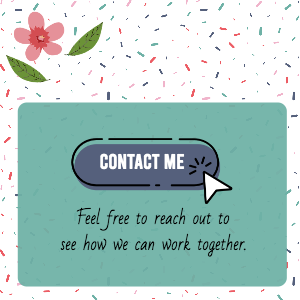“Five Star Rating” – A short story
Written by Elizabeth Gale
This was the most beautiful place he’d ever been. Of course, that wasn’t saying much. He was only ten years old and he hardly ever left his bedroom, let alone visited a tropical oasis like this.
Turquoise water glittered around him. Prisms of color and light bounced everywhere. The boy moved through the water, arms and legs synchronized effortlessly. He’d never swam in the ocean before but it felt like second nature. He had no trouble catching up with a massive sea turtle swimming ahead of him. He was in awe of the reptile’s textured shell and funny little tail.
The boy felt strong in this marine paradise. He could swim forever, he thought as he wildly kicked to catch up with a school of butterfly fish swimming by.
“What’s happening?” the woman asked, pointing to her son’s twitching feet. It was rare to see movement in his shriveled legs, even uncontrollable tics such as this.
There were two uniformed nurses in the room, but it was the plain clothed technician that answered. “It’s normal, Mrs. Clark” he assured the worried mother. “The electrodes are stimulating parts of his brain he hasn’t used in a long time,” he said pointing to the large brain scan on to the wall behind them. A light show danced within the cranial cross-section, indicating activity. She didn’t completely understand it, but it was clear that the electrodes hooked up to her son were inducing him into the virtual world they’d been promised.
“Remember, he isn’t paralyzed in virtual reality,” the technician said as he spun back toward the neurostimulator console and resumed typing.
As he turned away, Mrs. Clark read the bold typeface on the back of the man’s shirt, reminding her why he and the nurses had come. “Compassionate Endings Co., featuring our exclusive QuickDeath™ technology. Services are available in a variety of affordable package options.”
Tears welled up in the mother’s eyes. She had hired this company. She had invited them into their home – into their terminally ill son’s bedroom. She had paid for this childhood bedroom to be transformed into unfamiliar, noisy collection of machines and computers. She’d paid for these nurses to shave her son’s head and insert electrodes into his skull and spine. She was paying this technician’s salary to create a virtual environment in which her ten year old could draw his last breaths.
She’d hired these people to kill her child.
The boy’s father cleared his throat. Mrs. Clark jumped. She’d forgotten he was there, sitting behind them, gripping their boy’s favorite toy car tightly. Her husband had been there every step of the way, including the decision making process that had led to them this moment.
Mr. Clark looked up at his wife. He could see the last decade of hardship on her face. The last two years had been the hardest for them both. Their son’s condition was degenerative and terminal. Month after month he lay, twisted limbs lost muscle mass, angular and jutting in the child sized medical bed. He was rotated for bed sores and fed through a visceral tube.
Mr. and Mrs. Clark had chosen the Compassionate Endings Co. because it was a high quality national assisted suicide franchise, with a 5 star consumer rating online. They’d heard horror stories of lesser death services causing exorbitant pain and gut wrenching performances. Apparently it was an art to induce death with a smile, especially one in which the subject doesn’t lose his bowels. The Compassionate Ending Co.’s patented QuickDeath™ formula was fast, effective and clean. It was the best euthanasia money could buy .
Since the Death on Demand Act of 2042 passed, in which suicide was legalized and taxed, assisted death companies had popped up throughout the country. Legal homicide was the new gold rush, chasing on the tails of the suicide epidemic of the 21st century. True to its American capitalistic roots, it grew into a billion dollar service industry.
The American people had spoken, and they demanded the consumer right to purchase suicide on the open market.
Mr. and Mrs. Clark had purchased the company’s Premium Tropical Death Package for their terminally ill son. It combined the latest in virtual reality technology, brain-machine interface and had the most consistent results. Their boy was promised a “peaceful death, experiencing the joy and wonder of fulfilling a lifelong goal or purpose.”
“He won’t feel any pain. He won’t even know he is dying,” Mr. Clark reminded his wife. “He’ll be in tropical paradise.”
The boy’s feet twitched again. Mother and father clutched hands with the comatose child. Each parent imagined their son kicking wildly in turquoise water, his legs strong and straight, lungs free and clear. A salty tear rolled to Mrs. Clark’s lips. It tasted like the sea.
In virtual reality, the boy raced through the water, his left hand solidly gripped on a dolphin’s dorsal fin, his other spread joyfully in to the air. As he plunged deeply into the warm water, guided by the friendly creature, he didn’t look back.
In the boy’s bedroom, the technician entered a complex series of buttons. The brain scan image on the wall began to shut down in sections. One by one, small areas switched off, like electrical grid failure over a large city, until it ended in darkness.
It was done. Their boy was gone.
True to their brochure, the company was packed up and out of the Clark home within an hour, leaving no trace of the giant suicide machine or its staff. As the technician packed up his final items from the boy’s bedroom, he left a small folder for the grieving parents. Standard company documentation protocol included a final receipt and death certificate, as well as postcard that read, “Thank you for choosing Compassionate Endings Co.. Please give us a five star review for a 5% discount on your next assisted death. Have a nice day.”
THE END


